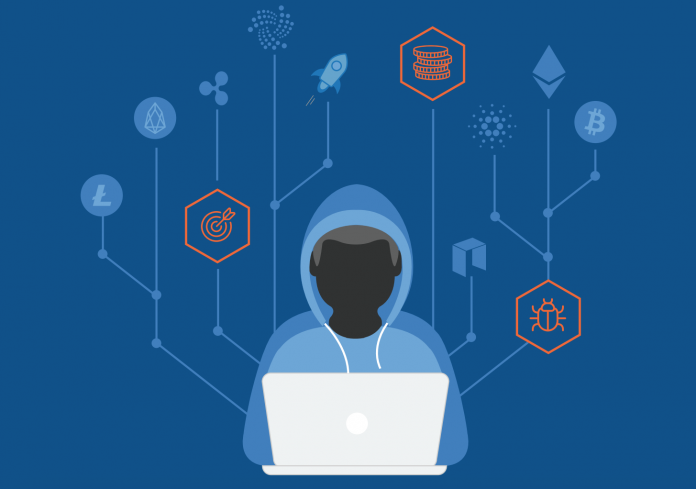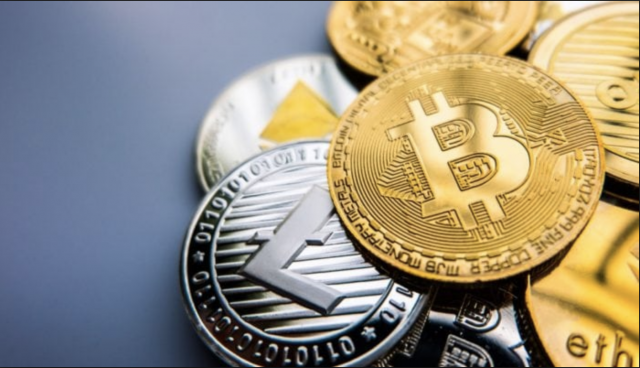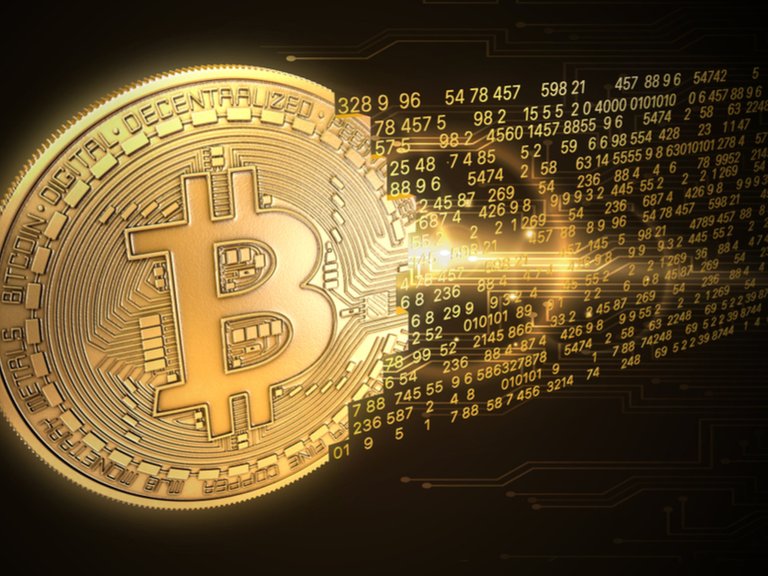There is no doubt in my mind that cryptocurrencies are extremely difficult to understand for beginners. The learning curve is high and it takes a real effort to find quality information on the subject.
It has always been my goal to educate @adsactly readers about important topics as they relate to technology and based on previous comments I've read on other crypto articles I've written I've decided to spend a bit more time in this area and discuss a simpler topic which is, how do we own crypto if it exists externally to ourselves. We can't physically see it or touch it, what does it really mean to 'own' it?
Because they aren't something physical you can see, touch or feel; it makes the whole concept of whether or not they are actually 'real' quite a bit harder to digest.
One of the most important things to learn about cryptocurrencies is the fact that you don’t technically “own” these assets in the sense that you can possess them physically. It's better when thinking about cryptocurrencies to replace the idea of ownership with the ideal of control.
To take it one step further it means that when you purchase a digital asset it actually means that you’re buying a key that represents ownership of such value.
With the key, you can tell the blockchain where to move your assets.
If you have a blockchain wallet, that wallet has been assigned a long string of numbers and letters called a private key. This key is essentially the code to the vault where your asset is stored as well as the way you can access your digital asset in other wallets if you decide to use a different one.
But the whole situation gets a bit more unclear when your digital assets (cryptocurrencies) are being held on an exchange in your exchange account. If your assets are sitting on an exchange we have to ask the question, do these assets actually exist?
How do we know the exchange actually has the bitcoin it says is in your account? How do we know it has everyone's bitcoin and isn't playing some sort of shell game and hoping that everyone doesn't want to take their bitcoin out at the same time?
The answer is that we don't. We don't actually know if they can make good on all their accounts and provide the actual underlying assets if a cryptocurrency bank run occurs.
This brings me to the “Proof of Keys” movement, which recently took place on January the 3rd, 2019.
Trace Mayer, the leader of the movement, encouraged everyone in the crypto space and put exchanges on notice that everyone was “going to withdraw all our bitcoin from any third party services just to prove that they’re there. It’s on the blockchain or it didn’t happen.”
Mayer and his team organized a sort of “bank run” – a situation where citizens rush into a bank to pull their funds as they believe the company is failing.
His main point was that if you don't store your cryptocurrencies on a hardware wallet or paper wallet, you don't actually have full control of your investment. It's the difference between having a $100 bill in your wallet or a piece of paper in there with the words IOU and the denomination of $100.
The results of this year's 'Proof of Keys' did seem to show some vulnerabilities; while some exchanges made good on their customers' withdrawal requests.
Mayer seemed to know what he was doing - HitBTC, a major crypto exchange, accused of wash trading, froze withdrawals ahead of the Proof of Keys day.
This fact was made apparent as a stampede of users took to social media to say that withdrawals were disabled on their account evoking suspicion from the crypto community.
Users posted screenshots of the following message they received after attempted to withdraw their cryptocurrencies: ‘Withdrawals are temporarily disabled on your account,”.
John McAfee, the Bitcoin evangelist, replied to the incident saying “I told you so”.
On the other hand, HitBTC is hardly the only untrustworthy exchange. Trace Mayer has also reported failures at Purse.io and Poloniex, as well as at the highly-regarded exchanges Bitfinex and Coinbase. That said, these exchanges are gaining far less media attention than HitBTC, so if nothing else, Proof of Keys is showing that users must maintain constant vigilance and make informed decisions.
The fact remains that there is a lot of merit to this movement and that exchanges are just like banks, some of which fail, taking their customers down with them. Crypto exchanges aren't insured like major American banks so if they get hacked or pull an exit scam, users are often left with nothing.
This brings me to my final point which is that if you don't have your cryptocurrencies in a wallet under your control and don't hold the keys to that wallet your crypto isn't safe.
So before diving into the real technical side of things, think about if you own any crypto and then really consider whether you own it or not. Hardware wallets can be valuable tools in this new and exciting age!
I want to know what @adsactly readers think about all this! Please leave your thoughts below.
Thanks for reading!
Authored by: @techblogger
Sources:
HitBTC invites wrath of Bitcoin community on Proof of Keys day - BCFocus
https://bcfocus.com/news/hitbtc-invites-wrath-of-bitcoin-community-on-proof-of-keys-day/46449/
HitBTC Attracts Controversy During Proof of Keys Event - Unhashed
https://unhashed.com/cryptocurrency-news/hitbtc-attracts-controversy-during-proof-of-keys-event/
Click on the coin to join our Discord Chat

Witness proposal is here:
Go To Steem Witness Page
In the bottom of the page type: adsactly-witness and press vote.

Use small letters and no "@" sign. Or, click here to vote directly!
Thank you!



Thanks! I'm trying to explain these concepts to my friends down here in Sardinia. Resteemed
Not your keys, not your coins.
This was the main point. Good summary!
I hold all mine on a reputable exchange. Just seems easier.
I've just got a 1 word reply to this comment.
QuadrigaCX.
I'm sure a lot of people in Canada thought the same thing. The result hasn't been pretty.
https://www.coindesk.com/quadrigacx-extension-hearing
This is quite interesting! @adsactly. I have really had a hard time explaining the concepts of cryptocurrency to newbies that isn't tech inclined. Nevertheless, I haven't stop educating them. Talking about the safety of keys to protect our funds, majority of the crypto wallets only allow computer generated passwords, leaving you without the possibility of changing it. If we can change thise long strings of password to our desired password, hackers operations will sure be reduced to the bearest minimum. I remain my humble, witty self @comclick
Hi, adsactly!
As you indicate in your publication, learning about the world of cryptocurrency is difficult for beginners. I am a beginner and it has cost me a lot.
Trying the investment topic, it would be advisable to have the capital divided among several trusted third parties, plus a part of the capital must be in hardware wallet. Money is necessary for transactions, regardless of the form in which this money is found. The difference between a profitable or non-profitable situation is the applied strategy. The more control measures are applied, the lower the risk situation.Your post, like the previous ones, , @techblogger, is very useful, especially for people like me, who are poorly informed and clumsy in this area. This one in particular is very intelligible, because it is written in a quite accessible language. I am grateful for all the information of this kind that you can give us. Greetings.
Excellent article!
The mere fact "proof of keys" and mock crypto-currency runs are catching the gang of fools gold in a computerized shell game should raise caution for everyone!
Great reporting insight.
Thanks!
I appreciate that your texts are very clear and simple, aimed at a group that does not skillfully handle knowledge about cryptography. In particular, I try to read articles on the subject, but I must admit that many times I don't understand them. Certainly, being accustomed to having organic money, cash and sound, can make us feel that virtual currencies do not exist, hence the little security and caution we have. In these days I read about the robbery that occurred in some wallets due to the misuse of keys and the lack of movement of some liquids. If we have a wallet with a lot of money on it, we would surely take the necessary precautions so that they do not steal them, not so with virtual wallets. It's all a matter of getting used to and educating ourselves in new technologies. Thank you for this information, @techblogger.